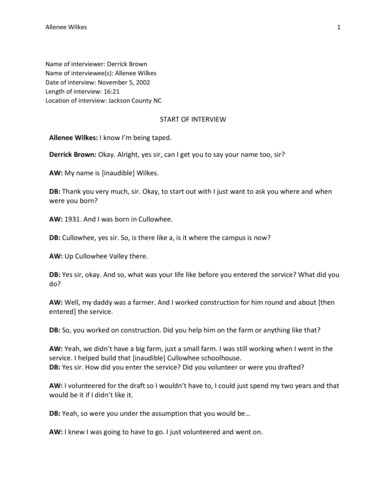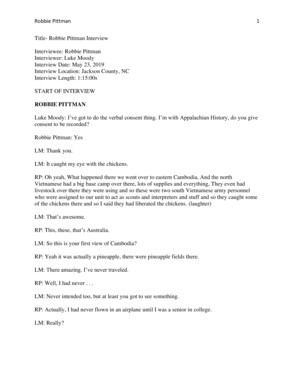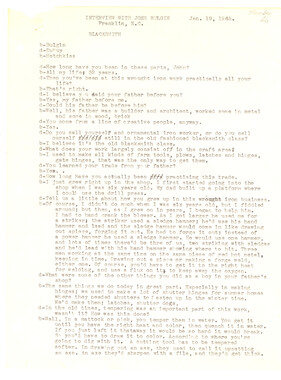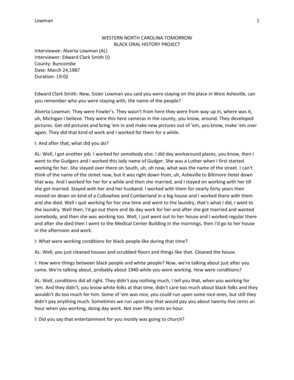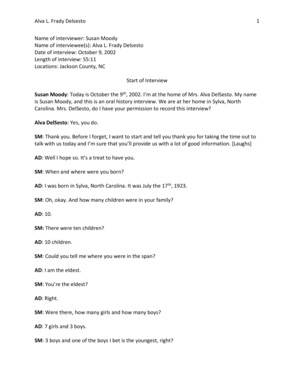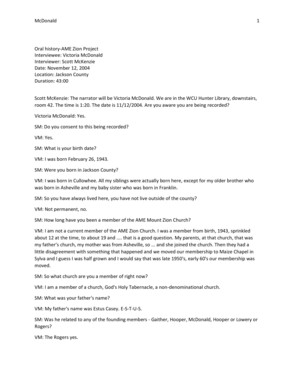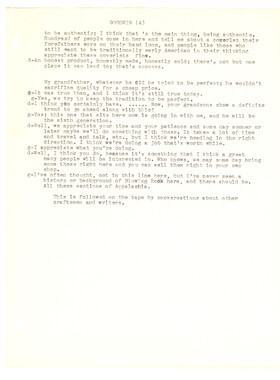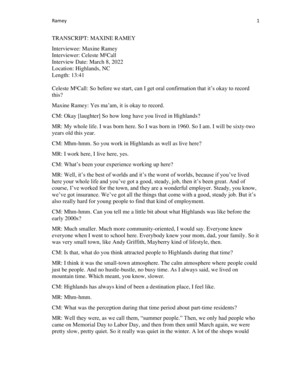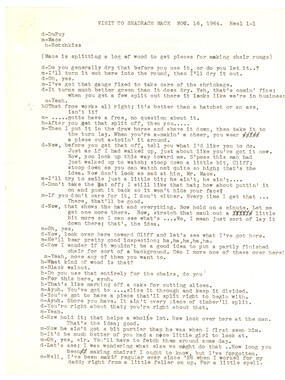Western Carolina University (21)
View all
- Canton Champion Fibre Company (2308)
- Cherokee Traditions (291)
- Civil War in Southern Appalachia (165)
- Craft Revival (1942)
- George Masa Collection (137)
- Great Smoky Mountains - A Park for America (2900)
- Highlights from Western Carolina University (422)
- Horace Kephart (941)
- Journeys Through Jackson (159)
- LGBTQIA+ Archive of Jackson County (85)
- Oral Histories of Western North Carolina (314)
- Picturing Appalachia (6797)
- Stories of Mountain Folk (413)
- Travel Western North Carolina (153)
- Western Carolina University Fine Art Museum Vitreograph Collection (129)
- Western Carolina University Herbarium (92)
- Western Carolina University: Making Memories (738)
- Western Carolina University Publications (2491)
- Western Carolina University Restricted Electronic Theses and Dissertations (146)
- Western North Carolina Regional Maps (71)
- World War II in Southern Appalachia (131)
University of North Carolina Asheville (6)
View all
- Allanstand Cottage Industries (62)
- Appalachian National Park Association (53)
- Bennett, Kelly, 1890-1974 (1463)
- Berry, Walter (76)
- Brasstown Carvers (40)
- Carver, George Washington, 1864?-1943 (26)
- Cathey, Joseph, 1803-1874 (1)
- Champion Fibre Company (233)
- Champion Paper and Fibre Company (297)
- Cherokee Indian Fair Association (16)
- Cherokee Language Program (22)
- Crowe, Amanda (40)
- Edmonston, Thomas Benton, 1842-1907 (7)
- Ensley, A. L. (Abraham Lincoln), 1865-1948 (275)
- Fromer, Irving Rhodes, 1913-1994 (70)
- George Butz (BFS 1907) (46)
- Goodrich, Frances Louisa (120)
- Grant, George Alexander, 1891-1964 (96)
- Heard, Marian Gladys (60)
- Kephart, Calvin, 1883-1969 (15)
- Kephart, Horace, 1862-1931 (313)
- Kephart, Laura, 1862-1954 (39)
- Laney, Gideon Thomas, 1889-1976 (439)
- Masa, George, 1881-1933 (61)
- McElhinney, William Julian, 1896-1953 (44)
- Niggli, Josephina, 1910-1983 (10)
- North Carolina Park Commission (105)
- Osborne, Kezia Stradley (9)
- Owens, Samuel Robert, 1918-1995 (11)
- Penland Weavers and Potters (36)
- Roberts, Vivienne (15)
- Roth, Albert, 1890-1974 (142)
- Schenck, Carl Alwin, 1868-1955 (1)
- Sherrill's Photography Studio (2565)
- Southern Highland Handicraft Guild (127)
- Southern Highlanders, Inc. (71)
- Stalcup, Jesse Bryson (46)
- Stearns, I. K. (213)
- Thompson, James Edward, 1880-1976 (226)
- United States. Indian Arts and Crafts Board (130)
- USFS (683)
- Vance, Zebulon Baird, 1830-1894 (1)
- Weaver, Zebulon, 1872-1948 (58)
- Western Carolina College (230)
- Western Carolina Teachers College (282)
- Western Carolina University (2008)
- Western Carolina University. Mountain Heritage Center (18)
- Whitman, Walt, 1819-1892 (10)
- Wilburn, Hiram Coleman, 1880-1967 (73)
- Williams, Isadora (3)
- Cain, Doreyl Ammons (0)
- Crittenden, Lorraine (0)
- Rhodes, Judy (0)
- Smith, Edward Clark (0)
- Appalachian Region, Southern (2929)
- Asheville (N.C.) (1944)
- Avery County (N.C.) (26)
- Blount County (Tenn.) (195)
- Buncombe County (N.C.) (1680)
- Cherokee County (N.C.) (283)
- Clay County (N.C.) (556)
- Graham County (N.C.) (238)
- Great Smoky Mountains National Park (N.C. and Tenn.) (525)
- Haywood County (N.C.) (3571)
- Henderson County (N.C.) (70)
- Jackson County (N.C.) (4917)
- Knox County (Tenn.) (35)
- Knoxville (Tenn.) (13)
- Lake Santeetlah (N.C.) (10)
- Macon County (N.C.) (420)
- Madison County (N.C.) (216)
- McDowell County (N.C.) (39)
- Mitchell County (N.C.) (135)
- Polk County (N.C.) (35)
- Qualla Boundary (982)
- Rutherford County (N.C.) (78)
- Swain County (N.C.) (2185)
- Transylvania County (N.C.) (270)
- Watauga County (N.C.) (12)
- Waynesville (N.C.) (86)
- Yancey County (N.C.) (72)
- Aerial Photographs (3)
- Aerial Views (60)
- Albums (books) (4)
- Articles (1)
- Artifacts (object Genre) (228)
- Bibliographies (1)
- Biography (general Genre) (2)
- Cards (information Artifacts) (38)
- Clippings (information Artifacts) (191)
- Copybooks (instructional Materials) (3)
- Crafts (art Genres) (622)
- Depictions (visual Works) (21)
- Design Drawings (1)
- Drawings (visual Works) (185)
- Envelopes (73)
- Exhibitions (events) (1)
- Facsimiles (reproductions) (1)
- Fiction (general Genre) (4)
- Financial Records (12)
- Fliers (printed Matter) (67)
- Glass Plate Negatives (381)
- Guidebooks (2)
- Internegatives (10)
- Interviews (815)
- Land Surveys (102)
- Letters (correspondence) (1013)
- Manuscripts (documents) (618)
- Maps (documents) (177)
- Memorandums (25)
- Minutes (administrative Records) (59)
- Negatives (photographs) (6090)
- Newsletters (1290)
- Newspapers (2)
- Notebooks (8)
- Occupation Currency (1)
- Paintings (visual Works) (1)
- Pen And Ink Drawings (1)
- Periodicals (193)
- Personal Narratives (10)
- Photographs (12976)
- Plans (maps) (1)
- Poetry (5)
- Portraits (4568)
- Postcards (329)
- Programs (documents) (181)
- Publications (documents) (2443)
- Questionnaires (65)
- Relief Prints (26)
- Sayings (literary Genre) (1)
- Scrapbooks (282)
- Sheet Music (2)
- Slides (photographs) (402)
- Songs (musical Compositions) (2)
- Sound Recordings (796)
- Specimens (92)
- Speeches (documents) (18)
- Tintypes (photographs) (8)
- Transcripts (322)
- Video Recordings (physical Artifacts) (23)
- Text Messages (0)
- A.L. Ensley Collection (275)
- Appalachian Industrial School Records (7)
- Appalachian National Park Association Records (336)
- Axley-Meroney Collection (2)
- Bayard Wootten Photograph Collection (20)
- Bethel Rural Community Organization Collection (7)
- Blumer Collection (5)
- C.W. Slagle Collection (20)
- Canton Area Historical Museum (2110)
- Carlos C. Campbell Collection (462)
- Cataloochee History Project (64)
- Cherokee Studies Collection (4)
- Daisy Dame Photograph Album (5)
- Daniel Boone VI Collection (1)
- Doris Ulmann Photograph Collection (112)
- Elizabeth H. Lasley Collection (1)
- Elizabeth Woolworth Szold Fleharty Collection (4)
- Frank Fry Collection (95)
- George Masa Collection (173)
- Gideon Laney Collection (452)
- Hazel Scarborough Collection (2)
- Hiram C. Wilburn Papers (28)
- Historic Photographs Collection (236)
- Horace Kephart Collection (861)
- Humbard Collection (33)
- Hunter and Weaver Families Collection (1)
- I. D. Blumenthal Collection (4)
- Isadora Williams Collection (4)
- Jesse Bryson Stalcup Collection (47)
- Jim Thompson Collection (224)
- John B. Battle Collection (7)
- John C. Campbell Folk School Records (80)
- John Parris Collection (6)
- Judaculla Rock project (2)
- Kelly Bennett Collection (1482)
- Love Family Papers (11)
- Major Wiley Parris Civil War Letters (3)
- Map Collection (12)
- McFee-Misemer Civil War Letters (34)
- Mountain Heritage Center Collection (4)
- Norburn - Robertson - Thomson Families Collection (44)
- Pauline Hood Collection (7)
- Pre-Guild Collection (2)
- Qualla Arts and Crafts Mutual Collection (12)
- R.A. Romanes Collection (681)
- Rosser H. Taylor Collection (1)
- Samuel Robert Owens Collection (94)
- Sara Madison Collection (144)
- Sherrill Studio Photo Collection (2558)
- Smoky Mountains Hiking Club Collection (616)
- Stories of Mountain Folk - Radio Programs (374)
- The Reporter, Western Carolina University (510)
- Venoy and Elizabeth Reed Collection (16)
- WCU Gender and Sexuality Oral History Project (32)
- WCU Mountain Heritage Center Oral Histories (25)
- WCU Oral History Collection - Mountain People, Mountain Lives (71)
- WCU Students Newspapers Collection (1923)
- Western North Carolina Tomorrow Black Oral History Project (69)
- William Williams Stringfield Collection (2)
- Zebulon Weaver Collection (109)
- African Americans (390)
- Appalachian Trail (35)
- Artisans (521)
- Cherokee art (84)
- Cherokee artists -- North Carolina (10)
- Cherokee language (21)
- Cherokee pottery (101)
- Cherokee women (208)
- Church buildings (190)
- Civilian Conservation Corps (U.S.) (111)
- College student newspapers and periodicals (2012)
- Dams (108)
- Dance (1023)
- Education (222)
- Floods (61)
- Folk music (1015)
- Forced removal, 1813-1903 (2)
- Forest conservation (220)
- Forests and forestry (1196)
- Gender nonconformity (4)
- Great Smoky Mountains National Park (N.C. and Tenn.) (181)
- Hunting (46)
- Landscape photography (25)
- Logging (119)
- Maps (83)
- Mines and mineral resources (9)
- North Carolina -- Maps (18)
- Paper industry (38)
- Postcards (255)
- Pottery (135)
- Railroad trains (72)
- Rural electrification -- North Carolina, Western (3)
- School integration -- Southern States (2)
- Segregation -- North Carolina, Western (5)
- Slavery (5)
- Sports (452)
- Storytelling (243)
- Waterfalls -- Great Smoky Mountains (N.C. and Tenn.) (66)
- Weaving -- Appalachian Region, Southern (280)
- Wood-carving -- Appalachian Region, Southern (328)
- World War, 1939-1945 (173)
Interview with Allenee Wilkes
Item
Item’s are ‘child’ level descriptions to ‘parent’ objects, (e.g. one page of a whole book).
-
-
Allenee Wilkes 1 Name of interviewer: Derrick Brown Name of interviewee(s): Allenee Wilkes Date of interview: November 5, 2002 Length of interview: 16:21 Location of interview: Jackson County NC START OF INTERVIEW Allenee Wilkes: I know I’m being taped. Derrick Brown: Okay. Alright, yes sir, can I get you to say your name too, sir? AW: My name is [inaudible] Wilkes. DB: Thank you very much, sir. Okay, to start out with I just want to ask you where and when were you born? AW: 1931. And I was born in Cullowhee. DB: Cullowhee, yes sir. So, is there like a, is it where the campus is now? AW: Up Cullowhee Valley there. DB: Yes sir, okay. And so, what was your life like before you entered the service? What did you do? AW: Well, my daddy was a farmer. And I worked construction for him round and about [then entered] the service. DB: So, you worked on construction. Did you help him on the farm or anything like that? AW: Yeah, we didn’t have a big farm, just a small farm. I was still working when I went in the service. I helped build that [inaudible] Cullowhee schoolhouse. DB: Yes sir. How did you enter the service? Did you volunteer or were you drafted? AW: I volunteered for the draft so I wouldn’t have to, I could just spend my two years and that would be it if I didn’t like it. DB: Yeah, so were you under the assumption that you would be… AW: I knew I was going to have to go. I just volunteered and went on. Allenee Wilkes 2 DB: What year was it that you joined? AW: I went in ’51 and stayed to ’53. DB: And how old were you then? AW: About twenty years old. DB: Twenty years. And what did your family feel [inaudible] about you leaving was it… AW: Well, they worried about it [inaudible] my dad was in the service [inaudible] I had an idea [inaudible]. DB: Was he in World War II? AW: He was in World War I. DB: World War I. So how did you feel [inaudible] were you kind of nervous? AW: Oh, I was nervous alright, but I wanted to go [inaudible]. I’m glad I went but I had all that I wanted. DB: Yes sir. Did you know you were going to Korea when you...? AW: Not until I finished basic training. I done sixteen weeks of basic training and I done basic training seven days, come home…seven days, I had had to leave home the day before Christmas to head overseas. DB: So, what was your life like when you entered the military? Was it a shock or had your life in Cullowhee kind of prepared you for it or was it different? AW: No, I wasn’t used to [inaudible] a whole lot of it at basic training. The bad part didn’t bother me at all. DB: So, I mean you would probably say growing up probably prepared you for it a lot. We’ve already said you’re a veteran of Korea. AW: That’s right. DB: When you entered the war, you said you did not know you were going to Korea but the Korean war had already started. AW: Yeah, I figured I probably would but I didn’t know I was. Allenee Wilkes 3 DB: Had you had any…much knowledge about Korea? Did you have any feelings about it? AW: I had no knowledge of it. When I got over there…been used to warmer weather here. Over there it would start snowing. It would snow every day through the winter months. You didn’t see the ground until way up in May. It went down to forty and below and stayed there. In the summertime it was very, very hot. It would get about a hundred and ten and stay around there. DB: Did you have any knowledge of the war, I mean what it was, what it was about, what we were fighting for, or did you have much knowledge of those issues? AW: Well, no not really. I didn’t exactly understand it while I was over there and kind of had what they called a thirty-eight parallel. We would go up on that and we’d hold back this side and they’d hold that side. If you took it you had to give it back to them in twenty-four hours. It didn’t make much sense. DB: So, you sound like...it was kind of hard if you were giving back what you took it was kind of hard to figure out exactly what you were fighting for. AW: Yeah, yeah. I think General Macarthur you know he got in trouble. He wanted to settle it. He wanted us to cross the Yalu river and go on and they kind of busted him down over that. DB: How did you feel about General Macarthur? AW: Well, he, as far as my knowledge he was a good general. I didn’t serve under him; I served under General Patton mostly. DB: Did you feel as you were leaving patriotism, maybe? Heading off to war, was it a motivating factor? AW: I’ve always felt proud of the country [inaudible]. DB: What did you do in Korea? What branch of the military were you in. AW: I was in the infantry. I carried a BAR, twenty rounds, it’s a light machine-gun. It was on the front line. DB: So, the BAR was like an automatic? AW: It was. It weighed twenty-three and a half pounds, and you carried twenty-three and a half pounds of ammunition. You had a man assigned to you to carry the ammunition for you in case you got into trouble. DB: So basically, each squad had a BAR? Allenee Wilkes 4 AW: Yeah, there’d be about two of each in each squad. And you could travel with them where you couldn’t with a machine gun, like going out on patrol and taking them out. DB: You were stationed on the thirty-eighth parallel most of your whole time there? AW: Yeah. DB: You were in for two years, correct? AW: Yeah. I had three months left of it though, a little time off, then come back. Then we got out, instead of twenty-four months you could get out in twenty-one…for having so many points for being on the front line. DB: So, you left the service when…’53? AW: In ’53. DB: Do you know what month in ’53? AW: I went in the 9th of August and I got out it would be twenty-one months later, that would’ve been… DB: That May or June? AW: Yeah somewhere around that, I don’t know exactly when. DB: At the time did you feel changed by your war service, definitely something you’d never seen? AW: It’ll make you a little more nervous. DB: There’s something I might’ve should’ve asked you before, was that one of your first times leaving Western North Carolina? AW: Yes, it was. DB: That’s a common theme when people go off to war; it’s one of the first times they left the area. So, you returned home, did you return back to Cullowhee. AW: Yeah. I came home, stayed home for two weeks then left and went to Michigan. DB: Oh, went to Michigan? AW: I went to Detroit, worked in a car plant [inaudible]. Allenee Wilkes 5 DB: When did you come back to Western North Carolina? AW: You mean after I went to Michigan? DB: Yes, sir. AW: I worked up there about a year, then I came back, then I went back the second time. My daddy got sick and they called me to come home and I came home. DB: From your time being back in North Carolina is there any way, this might be kind of like a difficult question, have you noticed how the region seems to be changed by its veterans’ participation in wars. AW: Well, I’ve noticed a lot between that time and this time. Used to be if a soldier was thumbing a ride home, just about anybody would pick you up, and now they will not. DB: Do you think that might have been changed by the Vietnam war? AW: I don’t know why. I’d just say that’s the meanness there is going on nowadays, people are afraid to pick you up. Back then people would trust you. Especially if you had a uniform on, it seemed like they expected you. DB: If you had never gone to Korea, you probably would…am I right in assuming that you could not have imagined going up to Detroit, leaving Cullowhee and going up to Detroit? AW: I got used to a big crowd then, I came home and I didn’t find no work right fast in two weeks and I had a friend that had been up there and he was on his way back and we ended up going. So that was a new experience. I loaded up and went. DB: Being in the army prepared you for that? AW: Yeah. DB: When did you come back to Western North Carolina for good? AW: That was in ’53. Well, I went to Michigan and worked a year and I came back. I went back up and stayed a little while the next time. But mostly, I’d say, a little over a year. I don’t remember exact dates. DB: Let me make sure the tape’s going. Okay, yeah. Have you been, is there, let me start over. How have you been treated as a veteran in Western North Carolina, do you think Western North Carolina values its veterans’ experiences? Allenee Wilkes 6 AW: Well, very well. I can’t have…no complaints. I did work a while for the government and they do [inaudible] me right off without any problems. DB: Are you involved with any veteran’s groups? AW: Nothing particular, no. DB: Have you noticed how maybe some of these veteran’s groups…do you think they actually serve a good purpose in protecting the rights of veterans? AW: Well, don’t know. There are some ways I don’t think they do. DB: So, in your, for your example, heading off to Korea enabled you be able to go to Detroit. It maybe made…can you think of another way veterans service has really changed the region, has it made the population more mobile or can you think of any examples such as that? AW: The service has changed a whole lot from the time I went in to now. They were more stricter when I went in than they are now in the service. You did have a short haircut, you would shave every day whether you wanted to or not. A lot of things like that has changed now. DB: Remembering back at the time, and I understand it’s been some years, you said your father was also a veteran, a veteran in World War I. Have you noticed that lots of people rushed to sign up about the same time you did in the region? AW: Oh yes. Back then, you know when you got out if you want to go to college they’d send you to school, which they’ve cut that out now, I think. I think I’m right on that. DB: Does Western Carolina seem, I guess the word would be patriotic in that respect? AW: Yeah, they took care of soldiers a lot better back then than I think they do now. I know in World War II, I know two fellows that lost a leg and the government gave them a new car and things like that. You know they did seem like further back they took better care of their soldiers better than they do now. DB: So, the government used to help the region. AW: Yeah. DB: Looking back now…I understand you were going to be drafted so it wasn’t something you didn’t have too much of a choice in. But is it something that you would do over again? I mean do you think that it helped make you who you are? Allenee Wilkes 7 AW: Well, I wouldn’t take nothing from my experience that I’ve had. I’m not in too big of a hurry to do it again. DB: Oh yeah, I understand that. AW: But if it came down to it and I had to go I wouldn’t go. DB: Well, I want to thank you for participating in this and thank you for the interview. I just want to ask you if there’s anything that you’d like to add, anything we haven’t covered that you might feel is relevant to the issue? AW: Well, I don’t know [inaudible]. Our outfit did get [inaudible] and they pulled us out of Korea and sent us to...I had the name of the island…they just guarded three of them and we guarded three of them for about two to three months before we came back to the states. DB: Was that because of heavy casualties in your outfits? AW: Yeah. DB: And you said your commander’s name was a General Patton. AW: General Patton. DB: General Patton yes sir. Alright, well thank you very much again sir for your participation.
Object
Object’s are ‘parent’ level descriptions to ‘children’ items, (e.g. a book with pages).
-
Allenee Wilkes is interviewed by Derrick Brown on November 5, 2002. They discuss Allenee Wilkes' experience in the Korean War. Veteran Mr. Wilkes shares some information on his military service in the Korean War. Born and raised in Cullowhee, North Carolina, Mr. Wilkes joined the military during the 1950s during the Korean War. During his time in Korea, he operated the Browning Automatic Rifle (BAR) at the 38th parallel which is now the border between North Korea and South Korea. There he served under General Patton. Mr. Wilkes would later go on to work in manufacturing in Detroit, Michigan for a few years after returning home from Korea. Mr. Wilkes believes veteran soldiers have it a little easier than in his day, however he believes veterans are no longer respected like they were in earlier generations.
-
